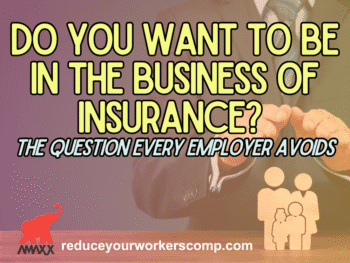What is the Role of a Risk Manager?
A risk manager is responsible for a broad array of duties as the company sets up a workers’ compensation management program. To reduce costs, the risk manager should closely monitor the implementation of the program. Naturally, the responsibilities depend on the size of the department and the amount of assistance that is provided.
Click Link to Access Free PDF Download
“The 5Cs to Taking a Bulletproof Injured Worker Recorded Statement”
Tips on What a Risk Manager Should Do:
- Determine the type of claims administrationarrangement. The risk manager needs to determine whether the type of claims administration you have is the right fit for your company and not take a one-size-fits all approach. The risk manager should perform an individualized assessment of your company’s strengths and needs to determine what arrangement works best for you.
- Ensure the adjuster-to-claim ratio is appropriatefor adjusters responding to your claims to get your workers back to productive employment faster. The risk manager needs to determine whether the adjuster has too many claims to process yours fast enough to keep your costs down.
- Consider whether your claims volume requires dedicated staff. The risk manager should assess whether the amount of workers’ compensation claims the company has requires one or more employees whose primary job function is to handle the workers’ compensation claims process.
- Follow claims administration’s best practices to better comprehend the adjuster’s role. The risk manager should be up-to-date on the insurance industry’s standards and recommendations in claims handling to assess whether your procedures need to be updated.
- Make sure claims handling personnel are trained in injury management concepts so they can grasp the issues affecting your claims. The risk manager should make sure that personnel are familiar with the expected claims process, forms, medical terms, action plan, and potential issues. As your first-line defense, you want your claims handling personnel informed enough to spot issues that may arise.
- Visit an adjuster claims handling location to see how your adjuster handles your files and view their claims operations first hand. There is no substitute for knowing exactly how your claim is being handled in the physical location where it is being processed.
- Attend associate seminars and meet with other industries to observe how other organizations address workers’ compensation issues in today’s labor market.
- Maintain benchmarks for your profession showing how potential savings generated by an effective injury management program far outweigh the initial costs of staffing.
Author Rebecca Shafer, JD, President of Amaxx Risk Solutions, Inc. is a national expert in the field of workers compensation. She is a writer, speaker, and publisher. Her expertise is working with employers to reduce workers compensation costs, and her clients include airlines, healthcare, printing/publishing, pharmaceuticals, retail, hospitality, and manufacturing. She is the author of the #1 selling book on cost containment, Workers Compensation Management Program: Reduce Costs 20% to 50%. Contact:RShafer@ReduceYourWorkersComp.com.
Editor Michael B. Stack, CPA, Director of Operations, Amaxx Risk Solutions, Inc. is an expert in employer communication systems and part of the Amaxx team helping companies reduce their workers compensation costs by 20% to 50%. He is a writer, speaker, and website publisher. www.reduceyourworkerscomp.com. Contact: mstack@reduceyourworkerscomp.com.
©2012 Amaxx Risk Solutions, Inc. All rights reserved under International Copyright Law.























